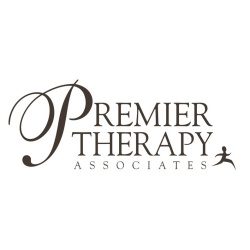We know there is nothing more important than the ability to communicate. We are committed to helping people of all ages improve their communication skills and become successful communicators for life.
Additionally, our therapists offer several coaching and support groups, including ADHD coaching for parents, parent support groups and family training classes. Our speech and language centers collaborate with some of the area’s best professionals to achieve the highest developmental potential.
Visit one of our partners for Speech and Language Rehabilitation
Speech and Language Services
Services available:
Mountain View Hospital and its affiliates employ an exceptional team of therapists. The primary goal of our therapists is to help each individual, and they do this by conducting speech and language assessments and creating individualized plans for each person.
Some of the additional services and therapeutic programs we provide include:
- Apraxia of Speech
- Assistive Technology / Nonverbal Clients
- Auditory Processing Disorders
- Augmentative Communication
- Autism
- Cleft Palate
- Cognitive Rehabilitation
- Developmental Delays
- Developmental Swallowing
- Early Intervention
- Executive Function Disorders
- Language Delays
- Learning Disabilities
- Literacy (Reading, Comprehension, Spelling)
- Metalinguistics (Higher Order Thinking Skills)
- Picture Exchange Communication System
- Social Skills / Pragmatic Delays
- Speech Production
- Stuttering
- Tongue Thrust
- Voice Disorders
Specialized Program Options
The speech pathologists and therapists at Mountain View Hospital and its affiliates have years of experience in Idaho. Each member of our team is well-educated and knows how to provide proper care for the families with which they work.
To learn more about the specialized programs and services we offer, see the list below:
Speech & Language Children’s Programs
- Tongue Thrust
- Language Delays
- Speech Production
- Augmentative Communication
- Literacy
- Executive Function Disorders
- Autism
- Apraxia of Speech
- Auditory Processing Disorders
- Early Intervention
- Metalinguistics (Higher Order Thinking Skills)
- Voice Disorders
- Learning Disabilities
- Assistive Technology/Nonverbal Clients
- Developmental Delays
- Cognitive Rehabilitation
- Stuttering
- Developmental Swallowing
- Picture Exchange Communication System
- Social Skills/Pragmatic Delays
- Cleft Palate
Occupational and Physical Therapy
Mountain View Occupational & Physical Therapy provides coaching, training, and skills to provide individuals the ability to manage daily living skills and maintain their functional independence.
Our highly skilled occupational therapists focus on the improvement of developmental disabilities, fine and gross motor delays, learning difficulties, and physical disabilities. We work to facilitate a child’s age-appropriate fine motor skills, improving handwriting, visual motor skills, upper body strength, attention span, organization skills, coordination, and body/spatial awareness.
The priorities for our pediatric occupational and physical therapists are child/teen’s physical development, sensory processing skills, cognitive skills, social/emotional development process, and gross motor skills (the body’s large muscle groups, enabling them to reach their targeted level of functional independence.
We provide therapy programs designed to address symptoms associated or resulting from any of the following scenarios:
Young Children Programs
- Premature birth (less than 32 weeks)
- Low birth weight – below 1500 grams;
- Congenital anomalies
- Genetic disorders
- Neurological insult occurring before, during, or after birth
- Delays in sensory motor skills
- Poor behavior-state regulation
- Neuromuscular disease
- An adolescent mother
- A mother with a history of substance abuse
- Parents with a developmental delay
- Adaptation to sensory experiences
- Sensory motor skills
- Parental adaptation of daily living skills to infants
- Variety and quality of play skills
Adult Programs
- Brain injury
- Build stronger family relationships
- Coping with injuries and adjusting
- Decision making
- Develop social skills within their peers
- Facilitate confidence in the work environment
- Help adjust patients to daily life skills
- Improve their social skills
- Increase reading skills
- Improve writing skills
- Neurological trauma
- Problem solving
- Comprehensive, productive life planning
- Reducing injury-related stress
- Speech and Language difficulties – head injury
- Speech and Language difficulties – stroke
- Teach everyday functional tasks
- Visual perception





